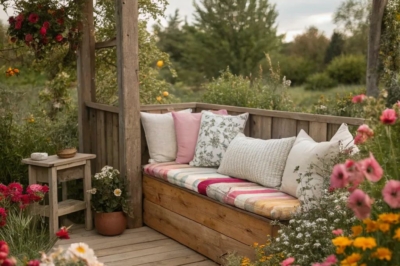1. Offer a Cozy Nest
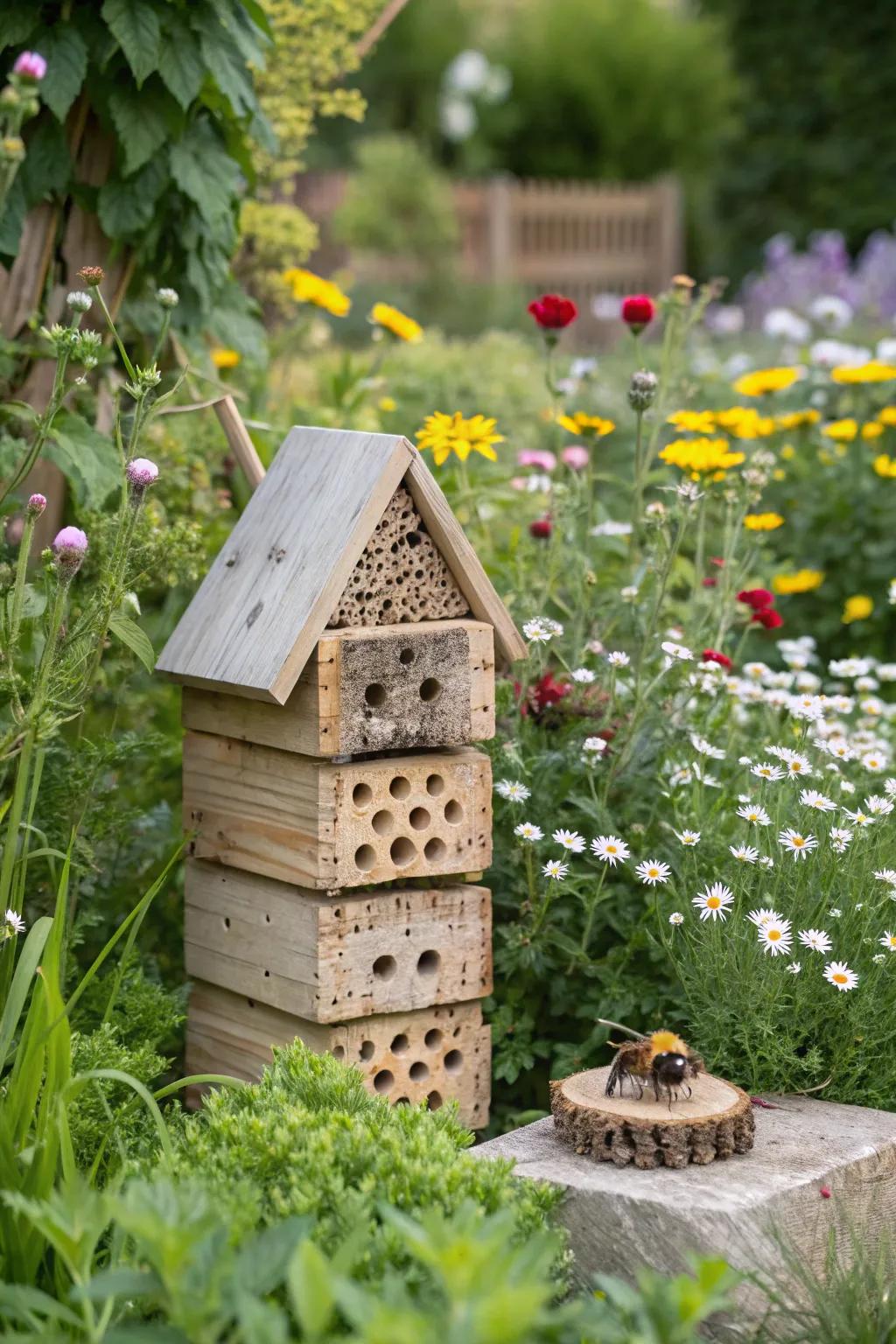
Provide nesting habitats like bee hotels or logs. I’ve set up a cozy bee hotel that’s always buzzing with activity.
Check these products out:
- Bee Hotel: Attract solitary bees with a safe and attractive bee hotel in your garden.
- Wooden Log Nesting Habitat: Provide a natural nesting option with a wooden log habitat for various pollinators.
- Insect House for Beneficial Bugs: Encourage beneficial insects with a carefully designed insect house in your garden.
2. Design with Layers
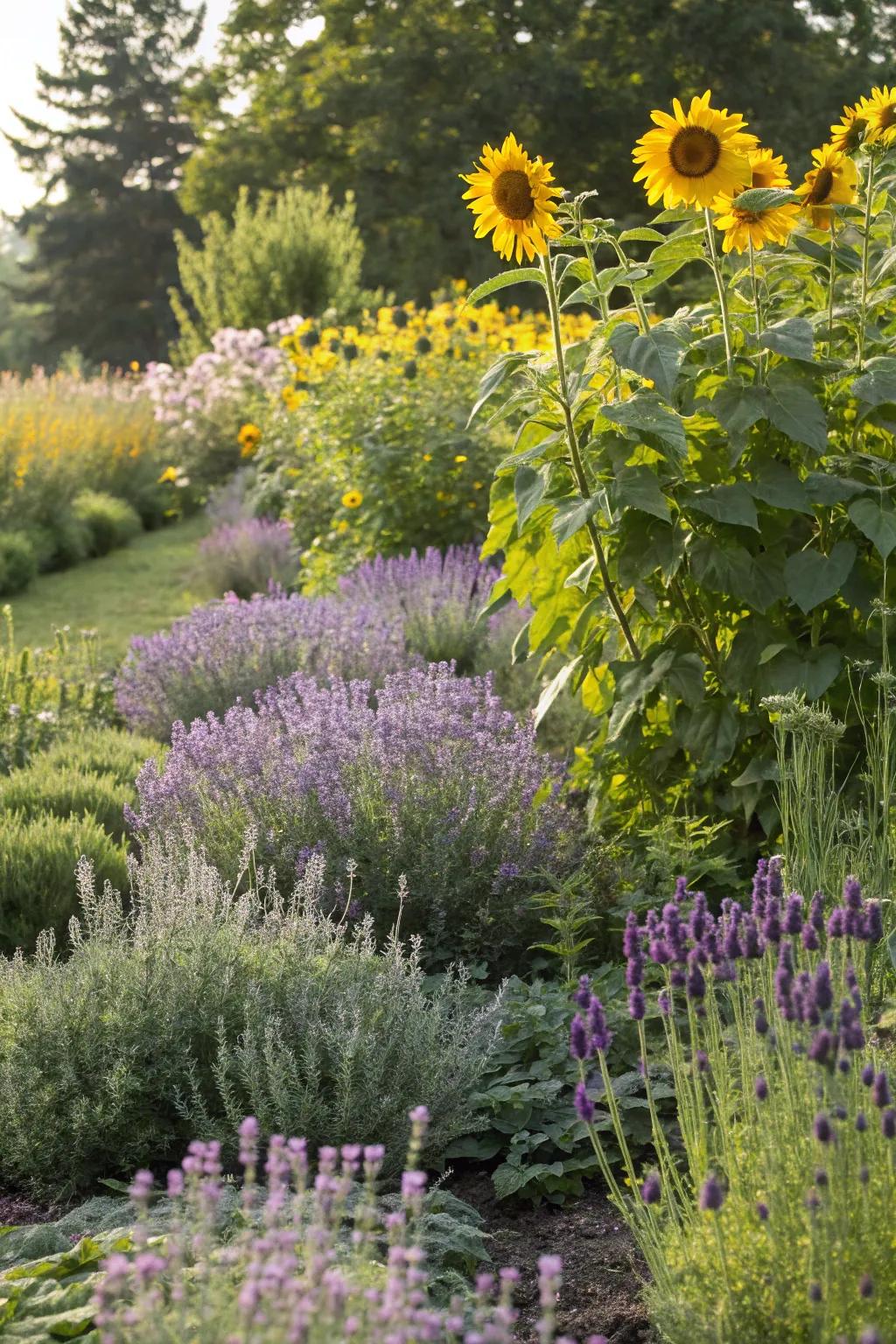
Create layered plantings with different heights to offer shelter and foraging opportunities. In my own garden, tall sunflowers stand proudly above shorter lavender and creeping thyme, creating a visual feast.
Consider these options:
- Sunflower Seeds for Planting: Grow towering sunflowers to provide height and vibrant color to your pollinator garden.
- Lavender Plants or Seeds: Attract pollinators with aromatic lavender blooms that enhance your garden’s beauty.
- Creeping Thyme Ground Cover: Plant creeping thyme to create lush ground cover offering shelter for garden visitors.
3. Install Pollinator Signs
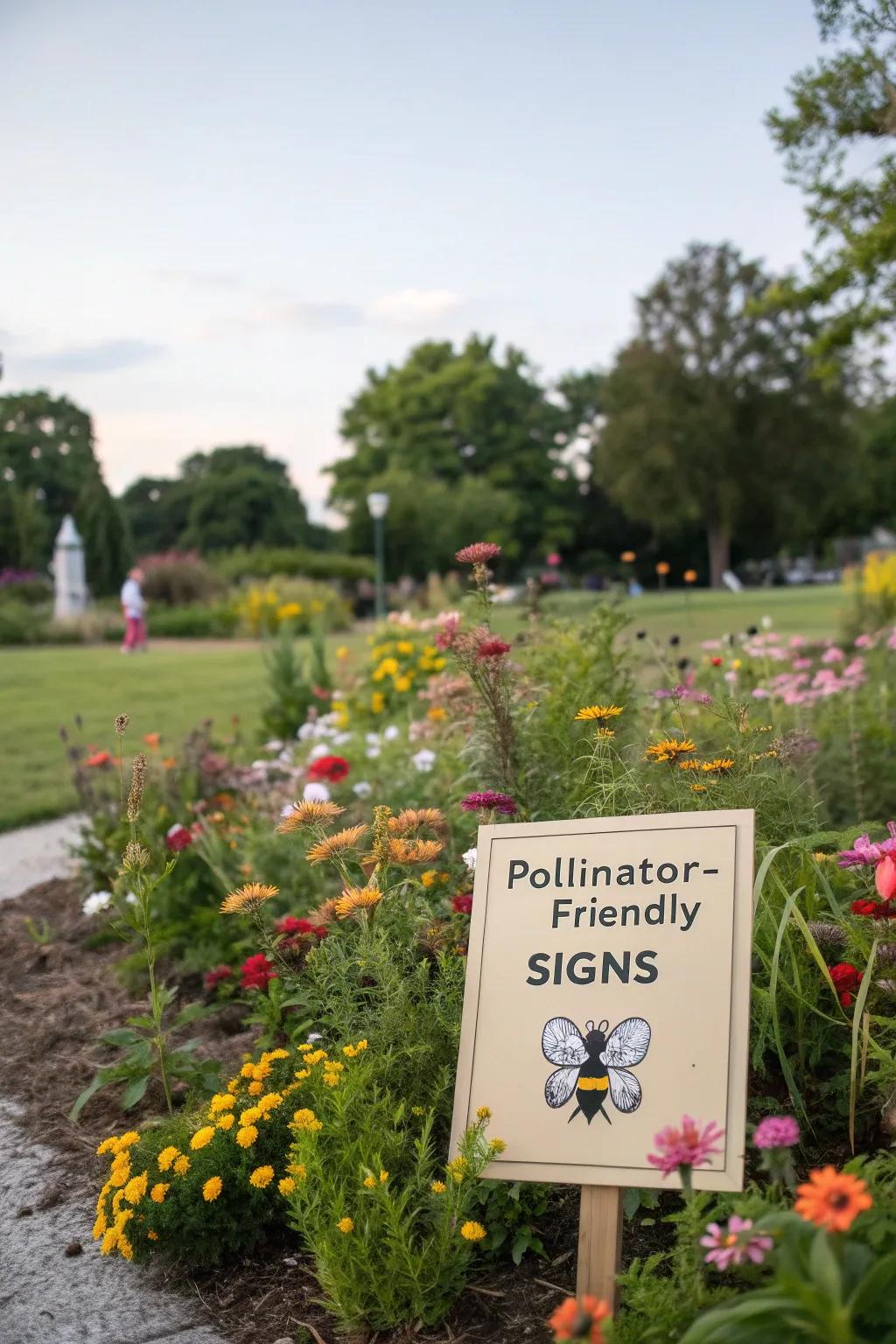
Use pollinator garden signs to spread awareness. My signs not only educate visitors but also add a personal touch to the space.
You might give these a try:
- Garden Pollinator Awareness Signs: Add charm and educate visitors in your garden with durable pollinator awareness signs.
- Eco-friendly Pollinator Signage: Highlight the importance of pollinators while enhancing your garden’s aesthetics. Inform and inspire guests.
- Customizable Pollinator Garden Signs: Personalize your garden space with customizable signs that advocate for pollinator-friendly environments.
4. Mix in Edibles
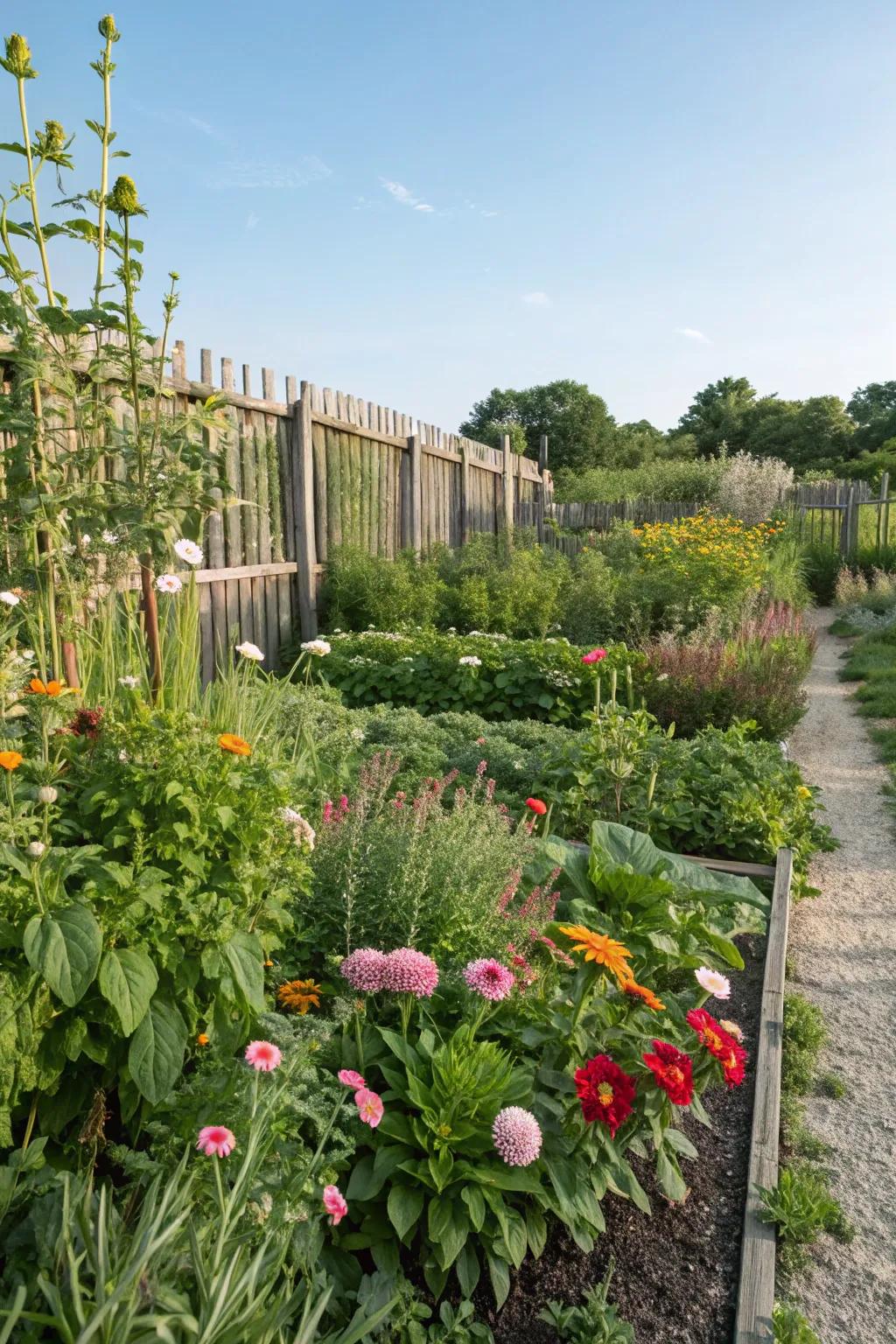
Add some edible plants like herbs and vegetables. Not only do they serve pollinators, but they also spice up my cooking with fresh flavors.
Possibly helpful picks:
- Herb Seed Variety Pack: Plant your own herb garden and enjoy fresh flavors in your dishes daily.
- Vegetable Gardening Kit: Start a vegetable garden to harvest fresh produce right from your backyard.
- Raised Garden Bed: Elevate your garden space with a raised bed, ideal for herbs and vegetables.
5. Add a Quiet Nook
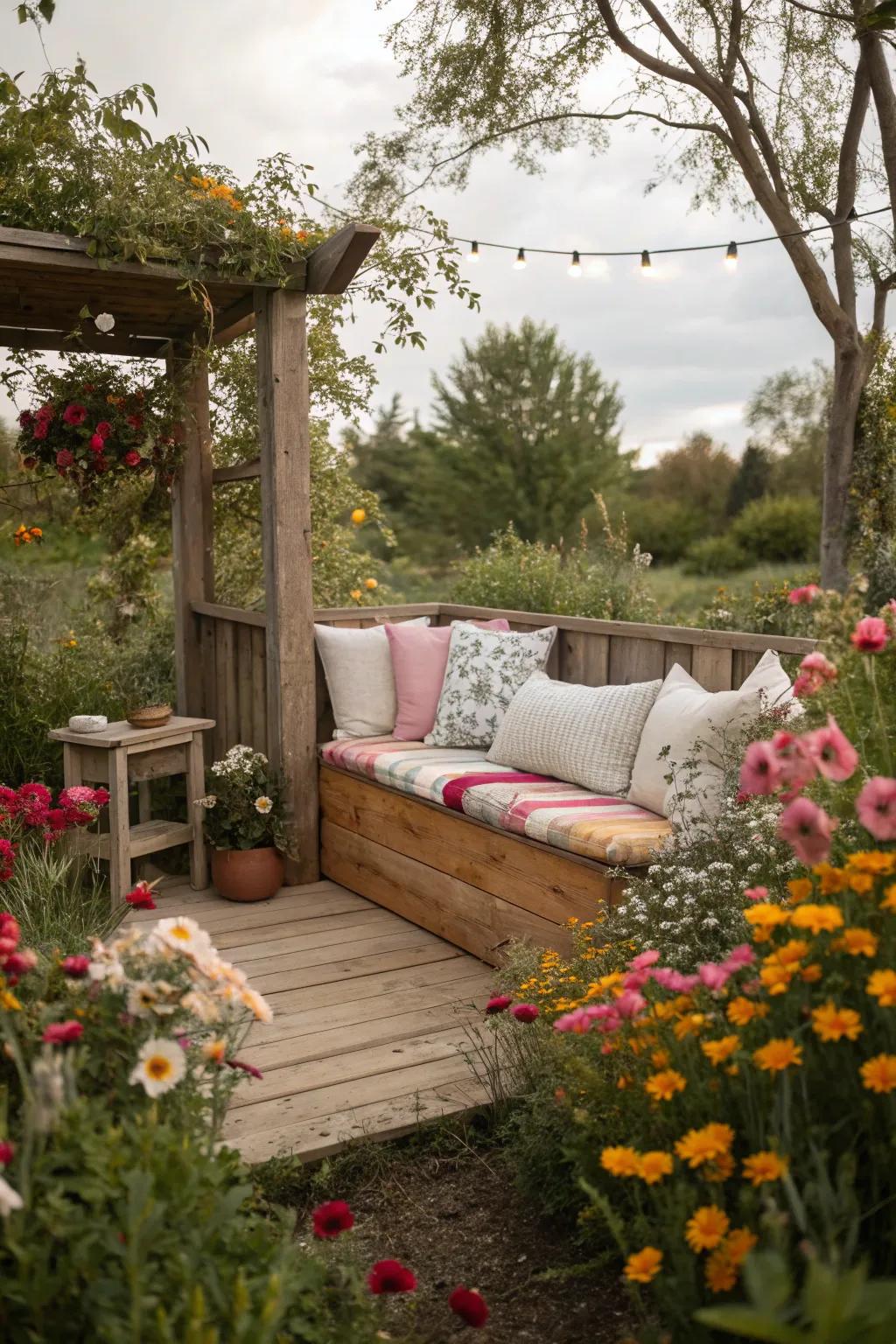
Include a seating area to enjoy your garden. My favorite spot is a simple bench under the shade, perfect for sipping coffee and watching the garden buzz.
A few relevant products:
- Outdoor Garden Bench: Create your garden sanctuary with a cozy bench perfect for relaxation and scenic views.
- Decorative Outdoor Cushions: Enhance comfort and style with weather-resistant cushions in vibrant patterns and colors.
- String Lights for Outdoor Use: Add ambiance to your garden with elegant string lights for evening enjoyment.
6. Try a Night Garden
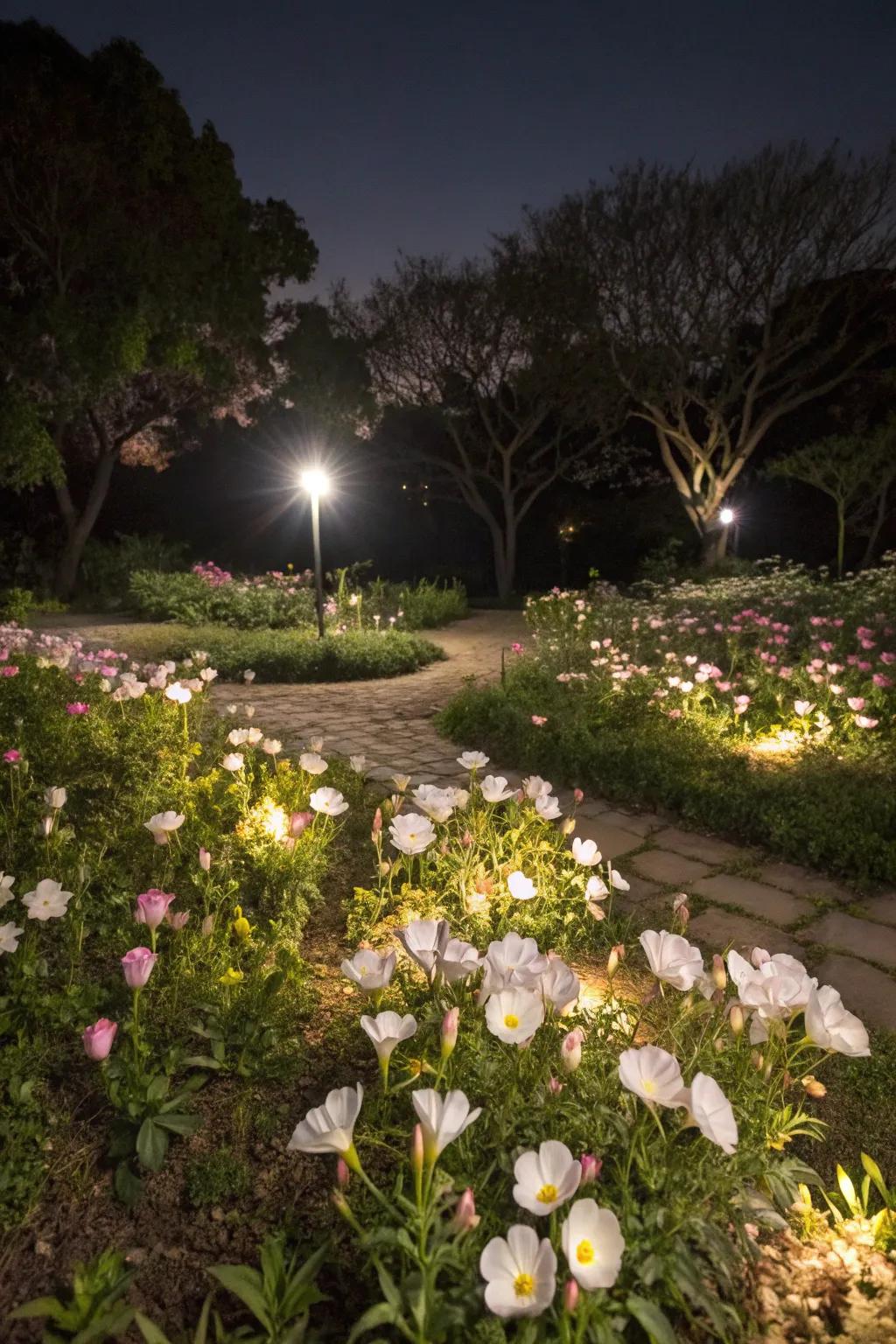
Plant night-blooming flowers for nocturnal pollinators. Evening primrose and moonflowers in my garden attract moths and create a magical night-time display.
Some handy options:
- Solar Powered Garden Lights: Illuminate your night garden with eco-friendly solar lights and enhance your evening ambiance effortlessly.
- Moonflower Seeds: Grow enchanting moonflowers to attract nocturnal pollinators and create a magical nighttime display.
- Evening Primrose Plants: Plant evening primrose to attract night-flying moths and bring a beautiful glow to your garden.
7. Design a Seasonal Symphony
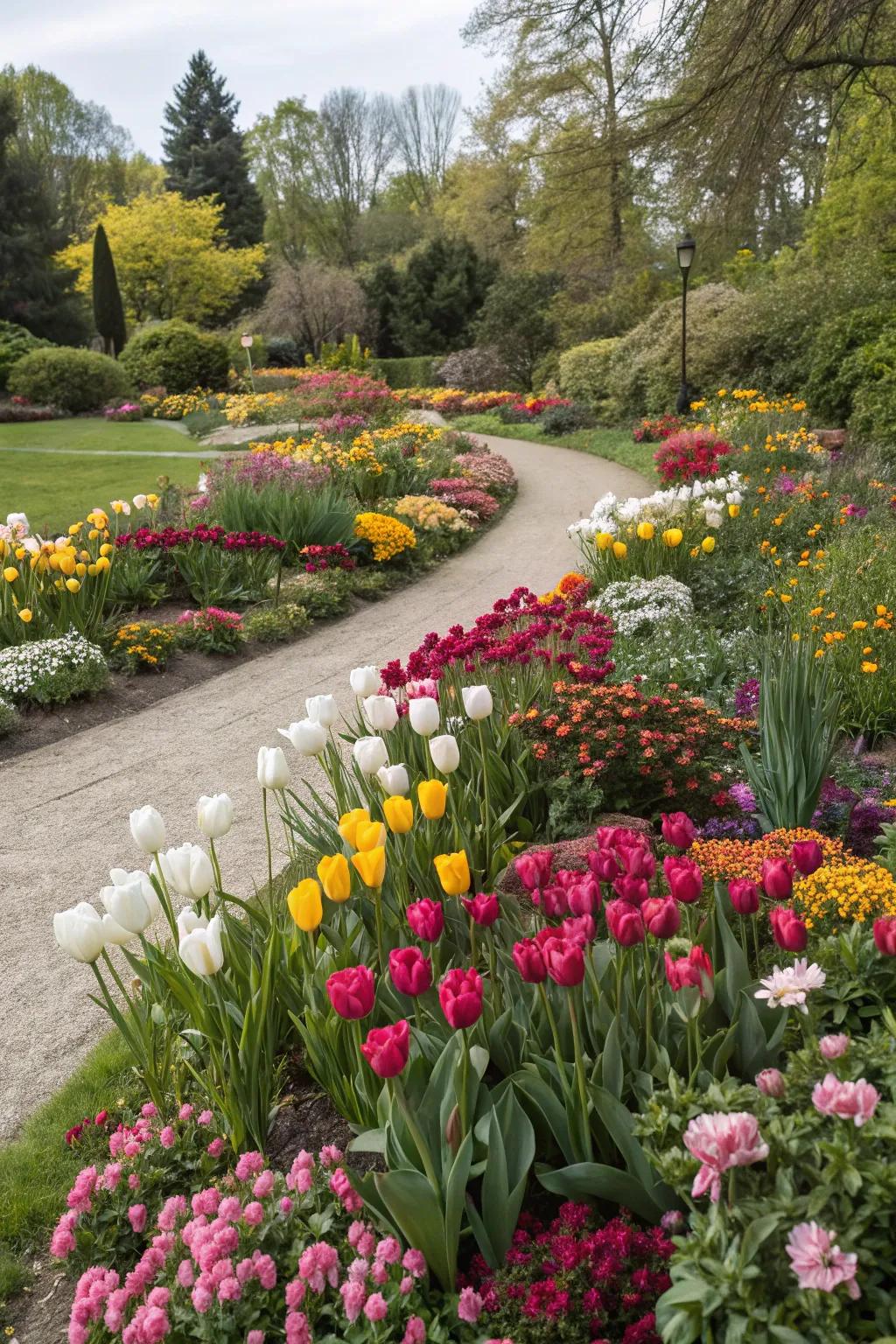
Plan for seasonal blooms to ensure continuous food supply. My garden transitions from spring tulips to summer coneflowers, keeping it lively all year round.
Maybe worth checking out:
- Spring Tulip Bulbs: Brighten your garden with vibrant tulip blooms, providing early spring delight for pollinators.
- Summer Coneflower Seed Mix: Attract pollinators to your garden with colorful coneflowers that bloom throughout summer.
- Pollinator-Friendly Garden Planters: Enhance your seasonal garden display with versatile planters ideal for various flowering plants.
8. Create a Blooming Pathway
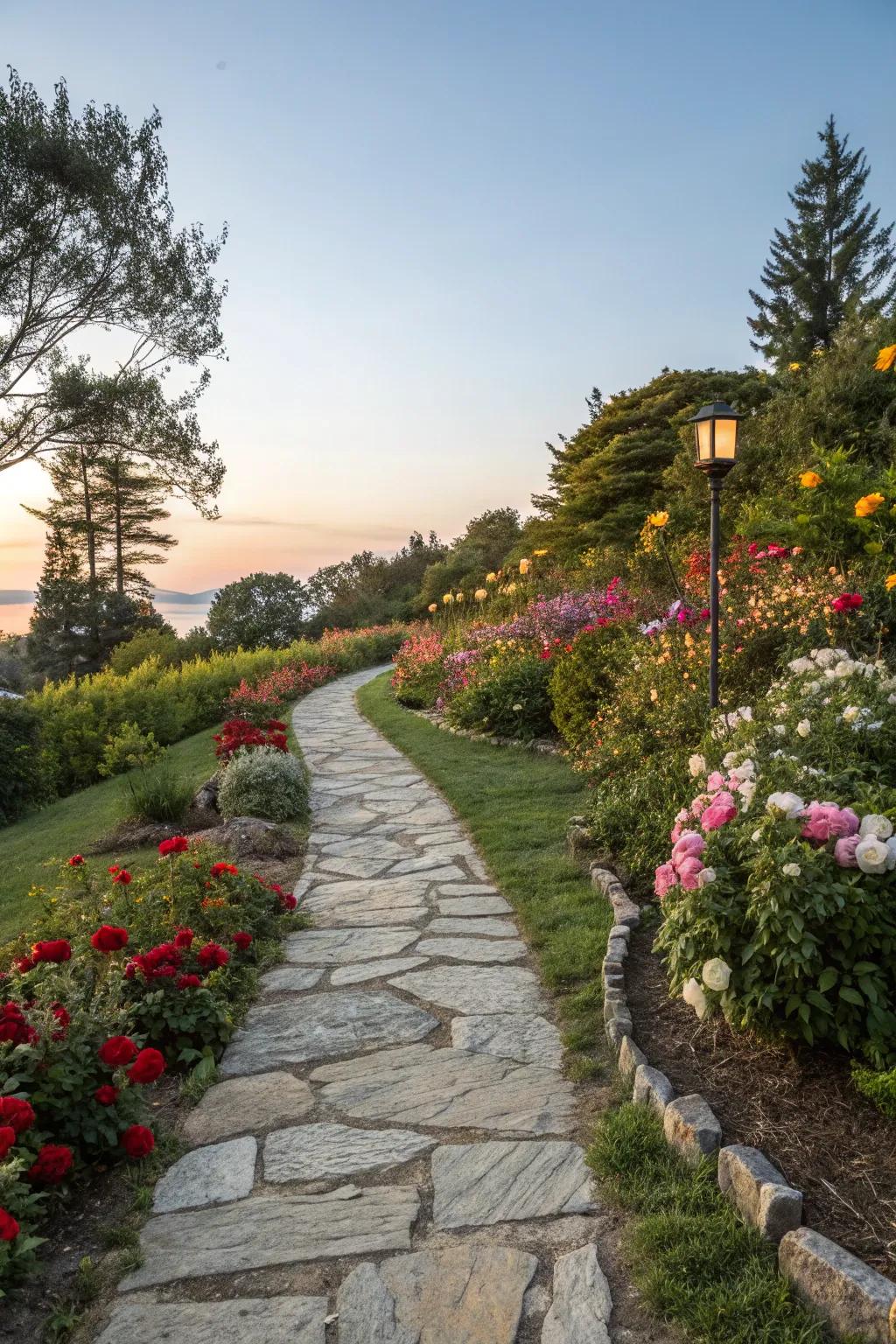
Lay down a gravel or stone path lined with flowering plants. This not only guides visitors through your garden but also provides a runway for bees and butterflies. My stone path is lined with cheerful marigolds and daisies.
Items that may come in handy:
- Decorative Garden Stones: Enhance your pathway aesthetics with decorative stones, creating a beautiful and inviting garden walk.
- Solar Pathway Lights: Illuminate your garden pathway sustainably with solar lights, offering beauty and safety after sunset.
- Marigold and Daisy Seeds: Plant vibrant marigold and daisy seeds to attract pollinators and add color to your pathway.
9. Add a Water Feature
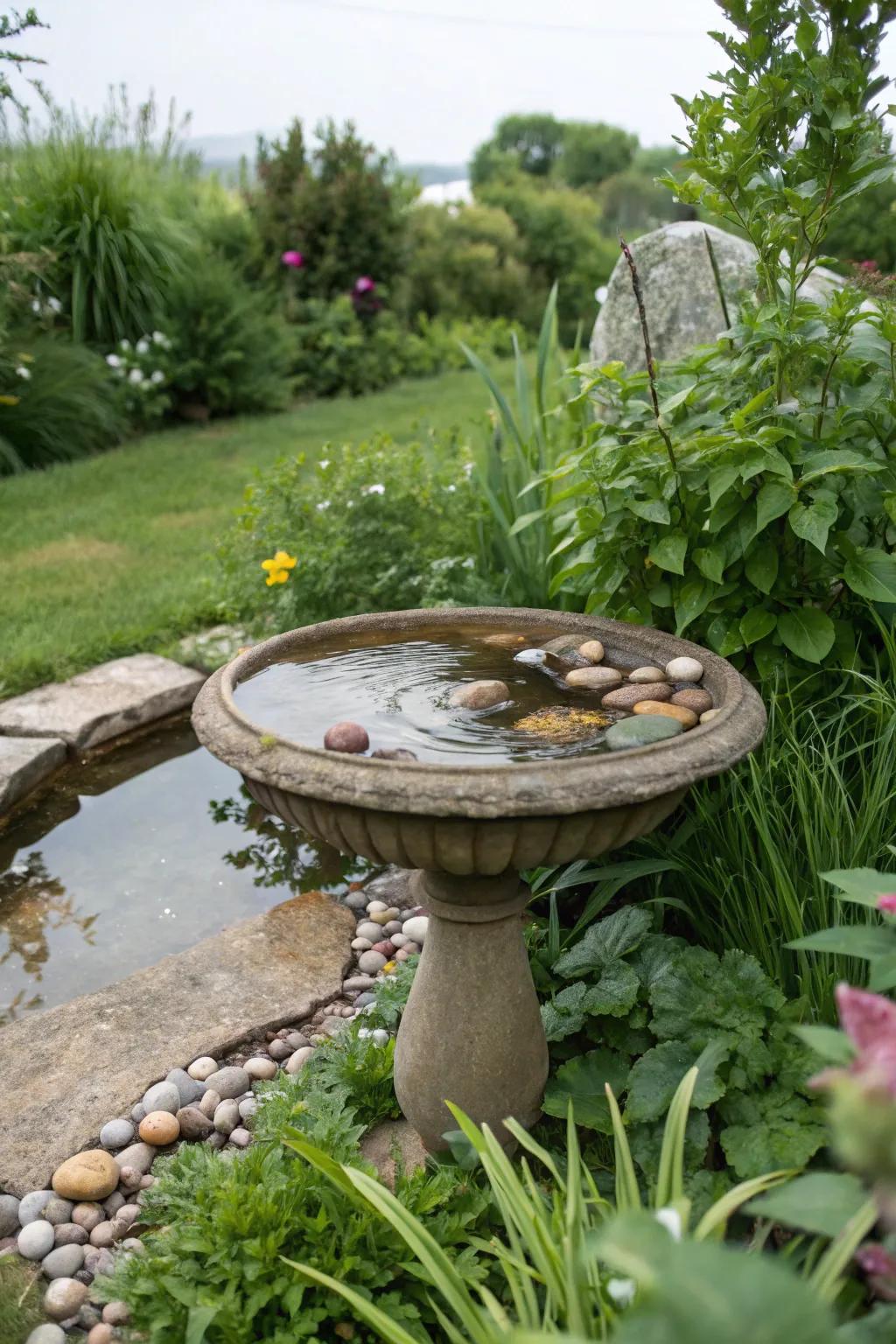
Install a small water feature to provide hydration for thirsty pollinators. In my garden, a shallow birdbath with pebbles offers a safe drinking spot for bees and butterflies.
These products might help:
- Shallow Birdbath with Pebbles: Provide a safe drinking spot for bees and butterflies with this charming birdbath.
- Solar-Powered Fountain Pump: Enhance your garden’s beauty while attracting pollinators with a solar-powered fountain pump.
- Decorative Garden Stones: Create a safe landing spot for pollinators by adding decorative stones to your water feature.
10. Incorporate Native Plants
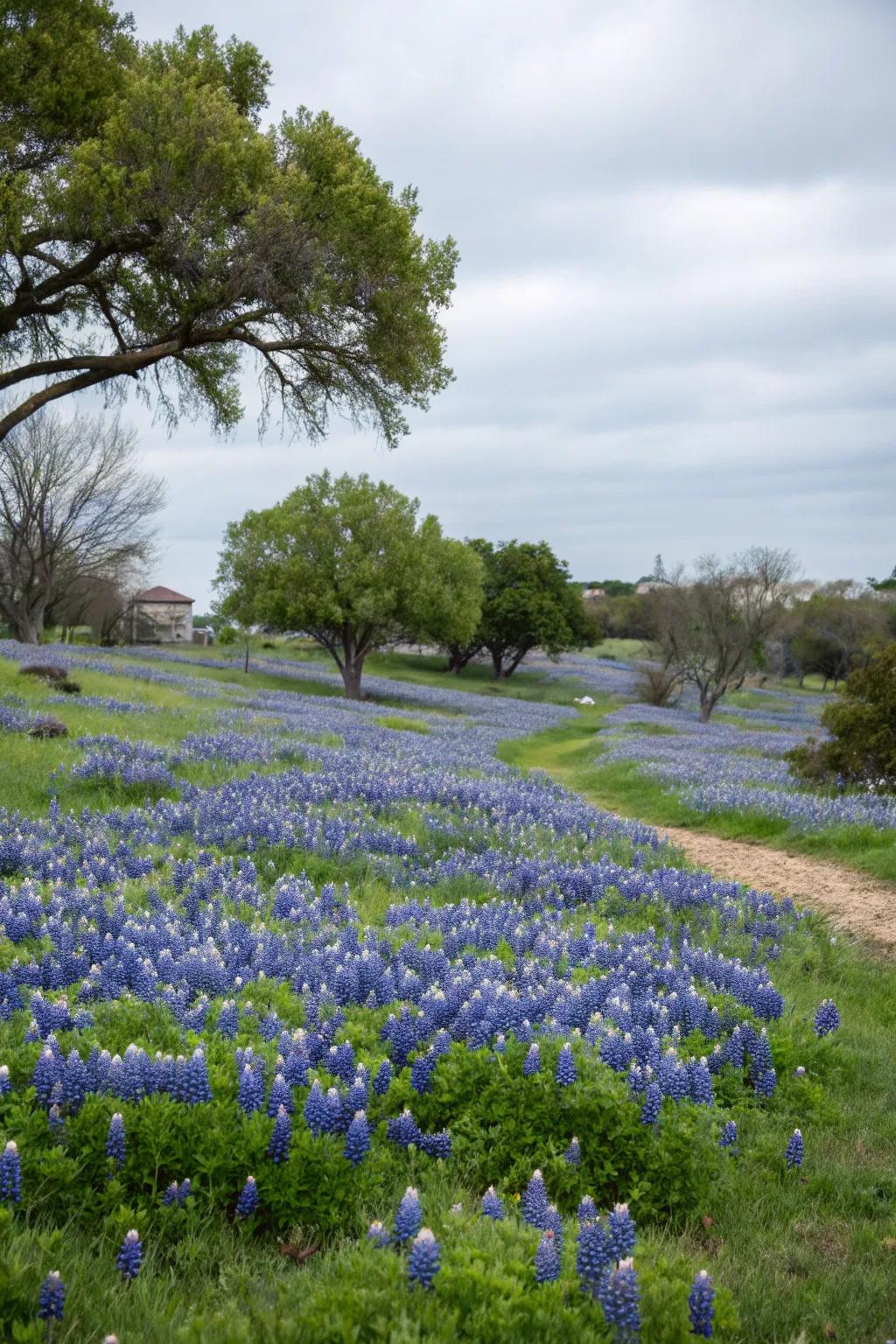
Use native plants to attract local pollinators. These plants are well-adapted to the local climate and require less maintenance. I’ve planted Texas bluebonnets and they never fail to attract bees.
Give these a look:
- Native Wildflower Seed Mix: Enhance your garden with a variety of wildflowers, designed to thrive in your region’s climate.
- Pollinator Garden Starter Kit: Kickstart your pollinator garden with this easy-to-use kit containing native plant seeds.
- Garden Soil for Native Plants: Provide optimal growing conditions with soil specifically formulated for native plants and flowers.
11. Use Natural Materials
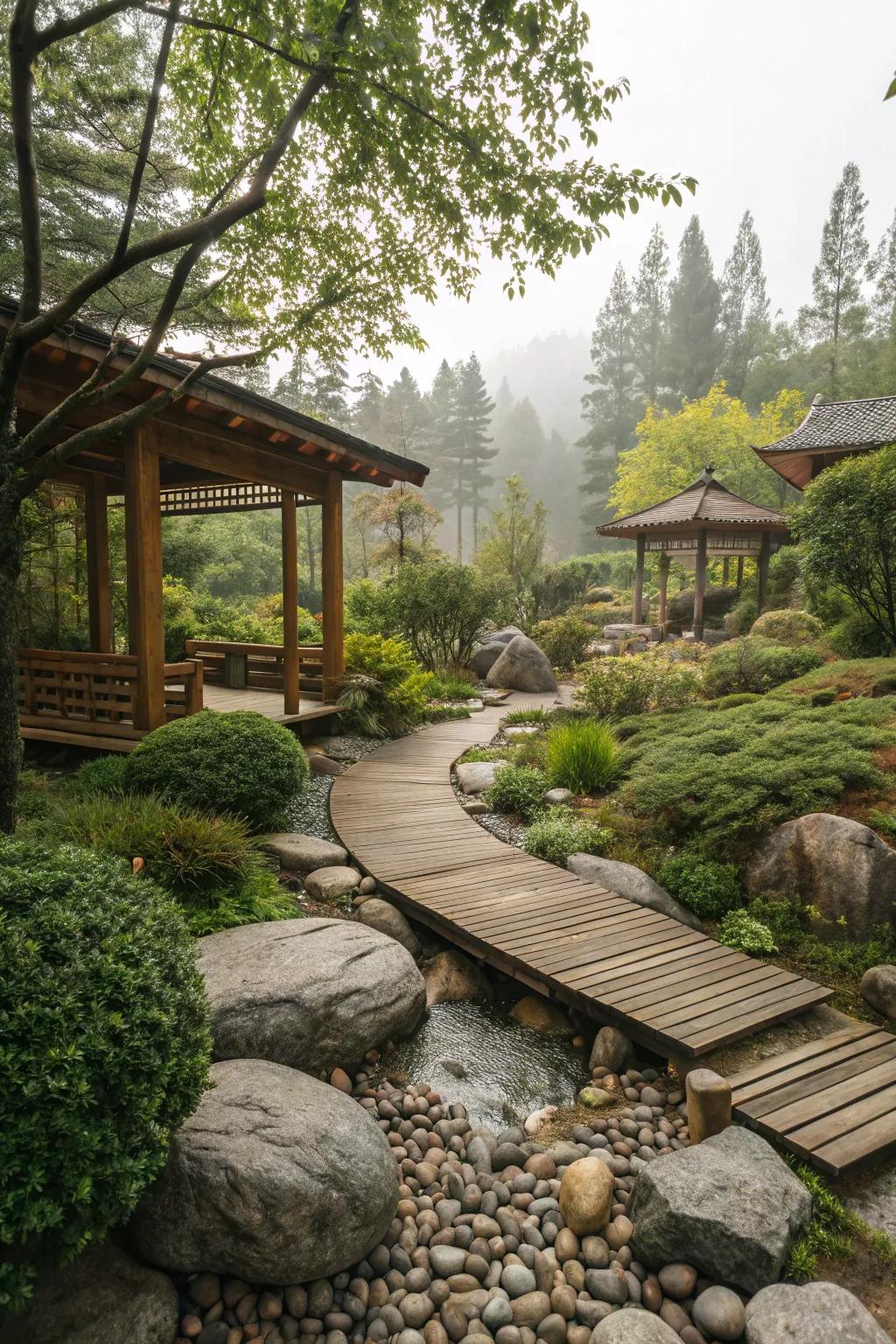
Incorporate natural materials like rocks and wood. These elements not only look great but also offer shelter and nesting spaces for various pollinators.
Products that could assist:
- Natural River Rocks: Enhance your garden’s beauty and provide shelter for pollinators with natural river rocks today.
- Wooden Garden Pathway: Create inviting paths and nesting spaces with a durable wooden garden pathway in your yard.
- Decorative Garden Wood Logs: Add rustic charm and pollinator habitats with decorative wood logs in your garden landscape.
